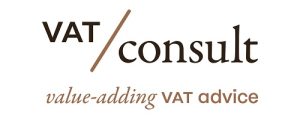VAT exemption on reimportation: breach of customs formalities does not prevent VAT exemption as long as there is no fraudulent intent or deception involved
- Background on Returning Goods: Goods exported from the EU lose their Union status and are classified as non-Union goods upon reimportation, necessitating customs formalities and potentially incurring import duties and VAT. However, there are exemptions for “returning goods” that meet specific conditions, allowing avoidance of these charges.
- Court’s Ruling on VAT Exemption: The Court of Justice of the European Union ruled that the VAT exemption for returning goods is contingent upon fulfilling both material and formal customs requirements. While compliance with customs procedures is necessary, the Court allows for some leniency in cases of administrative errors, provided no fraud is involved.
- Implications for Taxpayers: Taxpayers acting in good faith who fail to meet specific customs formalities may still qualify for the VAT exemption upon reimportation, emphasizing the need for compliance with customs regulations while recognizing the possibility of flexibility in non-fraudulent situations.
Source VAT-consult
See also
Click on the logo to visit the website
Meeting substantive conditions sufficient for VAT exemption on re-importation
- The Court of Justice of the European Union (CJEU) ruled that failing to meet formal obligations does not invalidate VAT exemptions for the re-importation of goods into the EU, as long as the goods are returned in their exported condition.
- The case involved AA (Palmstråle) transporting horses to Norway for competitions and subsequently returning to Sweden without declaring the horses for customs, leading to a VAT assessment but no customs debt.
- The CJEU emphasized that the VAT exemption stands unless there is evidence of an attempt at fraud, relating to customs obligations under the Customs Code.
CJEU Ruling in Palmstråle Case (C-125/24) on VAT Exemption for Reimported Goods
- Background of the Case: The case involves Palmstråle, who returned two horses to Sweden from Norway after competitions without declaring them to customs. The Swedish customs authority imposed VAT on the horses, asserting that the lack of declaration created a customs debt.
- Key Legal Question: The central issue was whether both the substantive and formal conditions of Article 203 of the Customs Code must be met to qualify for VAT exemption on reimported goods, specifically if missing formal steps could negate the exemption.
- CJEU’s Decision: The CJEU ruled that failure to comply with formal customs obligations does not automatically prevent VAT exemption for reimported goods unless there is evidence of fraud. The court emphasized the importance of considering the good faith of the individual and limiting consequences of negligence. It is up to the Swedish court to determine if Palmstråle’s actions were negligent or fraudulent.
Source BTW jurisprudentie
- Join the Linkedin Group on ECJ/CJEU/General Court VAT Cases, click HERE
- VATupdate.com – Your FREE source of information on ECJ VAT Cases
















